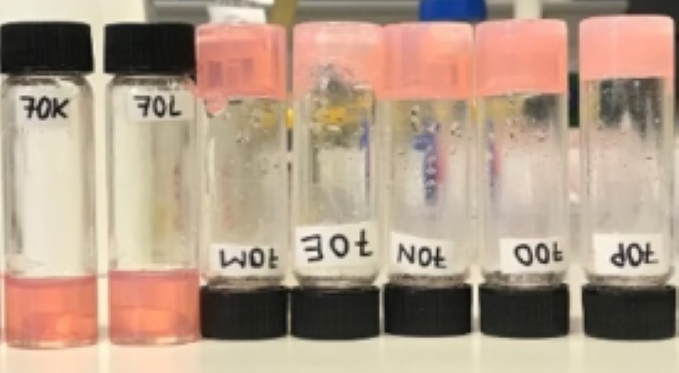Researchers at Aston University are currently investigating how to make lithium-ion batteries, which are the most widely used in devices and electric vehicles, safer and less harmful to the environment using gel electrolyte materials.

Image Credit: Aston University
The Engineering and Physical Sciences Research Council has awarded the University a grant of £443,058 to create gel electrolyte materials that are safe, dependable, sustainable, and economically viable.
Currently, batteries and other energy storage devices are assembled via multiple laborious processing steps and typically use flammable solvents and fossil fuel-derived materials with poor thermal and chemical stability.
The researchers will create ionogels that are renewable and capable of conducting electrically charged ions.
The gel electrolyte materials will become a replacement for the harmful, flammable components that are currently employed and will help prevent batteries from leaking.
Dr. Matt Derry is a chemistry lecturer at Aston University, where he oversees the team from the College of Engineering and Physical Sciences.
There is a need to identify new solutions for sustainable energy storage but one of the biggest barriers to the uptake of renewable energy is the lack of scalable methods of storing electrical energy. We will create recyclable gel electrolytes using non-harmful, non-flammable and renewably sourced materials for next generation battery technologies.
Dr. Matthew Derry, Lecturer, Chemistry, Chemical Engineering & Applied Chemistry, Aston University
Apart from receiving a research grant that will begin on March 1st, 2024, Dr. Derry and his colleagues have recently published a study in Chemical Science, the premier open-access journal of the Royal Society of Chemistry. The study, titled “Block copolymer synthesis in ionic liquid via polymerization-induced self-assembly: a convenient route to gel electrolytes,” highlights the creation of ionogels using this novel method.
This transformative research program will deliver new sustainable, responsive ionogel materials which are easier to manufacture. The ionogels developed in this project will help to address the significant shortcomings in the underutilization of renewable energy in the coming years and will contribute to the UK’s drive to achieve net zero greenhouse gas emissions by 2050. Given the desperate need for sustainable energy storage solutions, as recognized by the UN with Sustainable Development Goal 7 on affordable and clean energy, the proposed research is timely and impactful.
Dr. Matthew Derry, Lecturer, Chemistry, Chemical Engineering & Applied Chemistry, Aston University
As a result of the ongoing study, PhD student Georgia Maitland, who contributed to the scientific publication, will be hired as a postdoctoral researcher at Aston University.
The study project will be ongoing until February 2027.